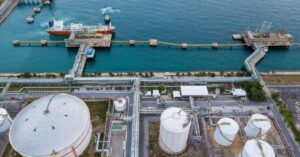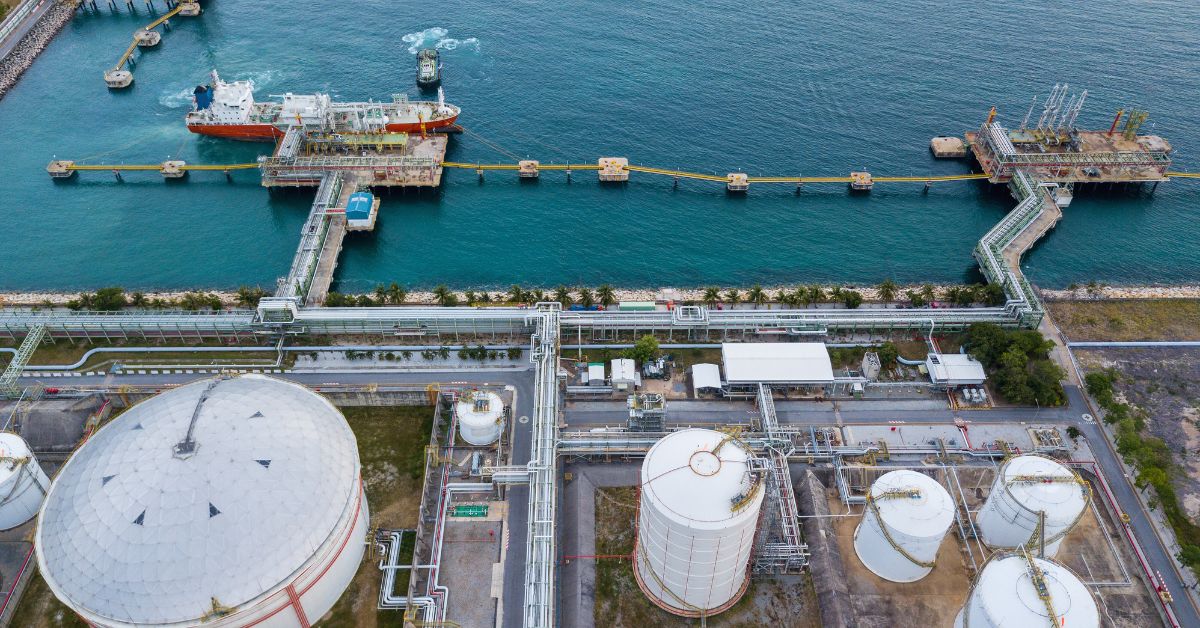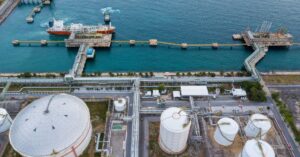
Armed Pirates Open Fire & Attempt To Board Tanker Off Mogadishu
November 4, 2025
MSC To Reflag 12 Container Ships In India As The Country Passes New Maritime Regulations
November 4, 2025

The U.S has earned the title of the first country to export 10 million metric tonnes of liquified natural gas in a single month.
It is now the largest LNG exporter in the world and has been increasing sales with 4 record-setting months in 2025.
The surge has been led by Venture Global’s Plaquemines export plant and Cheniere’s Corpus Christi Stage 3 project, which comprised 72% of the country’s total exports in October.
The Plaquemines facility in Louisiana sold 2.2 million metric tonnes last month, while the Corpus Christi export facility exported 1.6 mmt.
Once completed, the Corpus Christi Stage 3 operation will enable Cheniere to export over 50 million metric tonnes annually, starting in 2026, said CEO Jack Fusco.
Most of the exports were headed to Europe, with 69% of the total exports heading to the continent last month.
US LNG exports to Asia last month stood at 1.96 mmt compared to 1.63 mmt in September, while exports to Latin America fell in October to 0.57 mmt, down from September’s 0.63 mmt.
Egypt bought 5 cargoes for 0.43 mm, less than 0.5 mmt it bought in September, per data.
Two cargoes worth 0.1 mmt went to Senegal.
Despite this triumph, the U.S LNG sector faces criticism over its environmental impact.
A report by the Environmental Integrity Project (EIP), released on October 29, 2025, revealed that all 7 U.S LNG export terminals violated federal air pollution laws over the past 5 years.
The report documented 425 emission incidents since 2016, leading to the release of over 14,000 tonnes of air pollution.
In 2023, these facilities emitted 18.2 million tonnes of greenhouse gases, the equivalent of emissions from 3.9 million cars, alongside 15,733 tonnes of air pollutants, including nitrogen oxide and benzene, both of which are carcinogens.
Local communities near LNG export terminals have also expressed their concerns about the impact on their health and livelihoods.
John Allaire, who lives near the Calcasieu Pass LNG terminal, said that he could see flames at night and also black smoke, including hearing loud alarms going off, which causes the residents great discomfort.
Fishermen in the area have also reported that their catches have dropped by over 50%.
As the U.S LNG Sector is expected to expand in the coming years, with atleast 33 new LNG terminals, tripling the exports in the coming decade, the debate over the issue has intensified.
Supporters highlight how it would be beneficial for the economy and strengthen energy security while offering a cleaner option than coal for buyers.
On the other hand, critics highlight that it could cause the health and livelihoods of local communities who are impacted in several ways by these LNG export facilities.
Source: Maritime Shipping News


